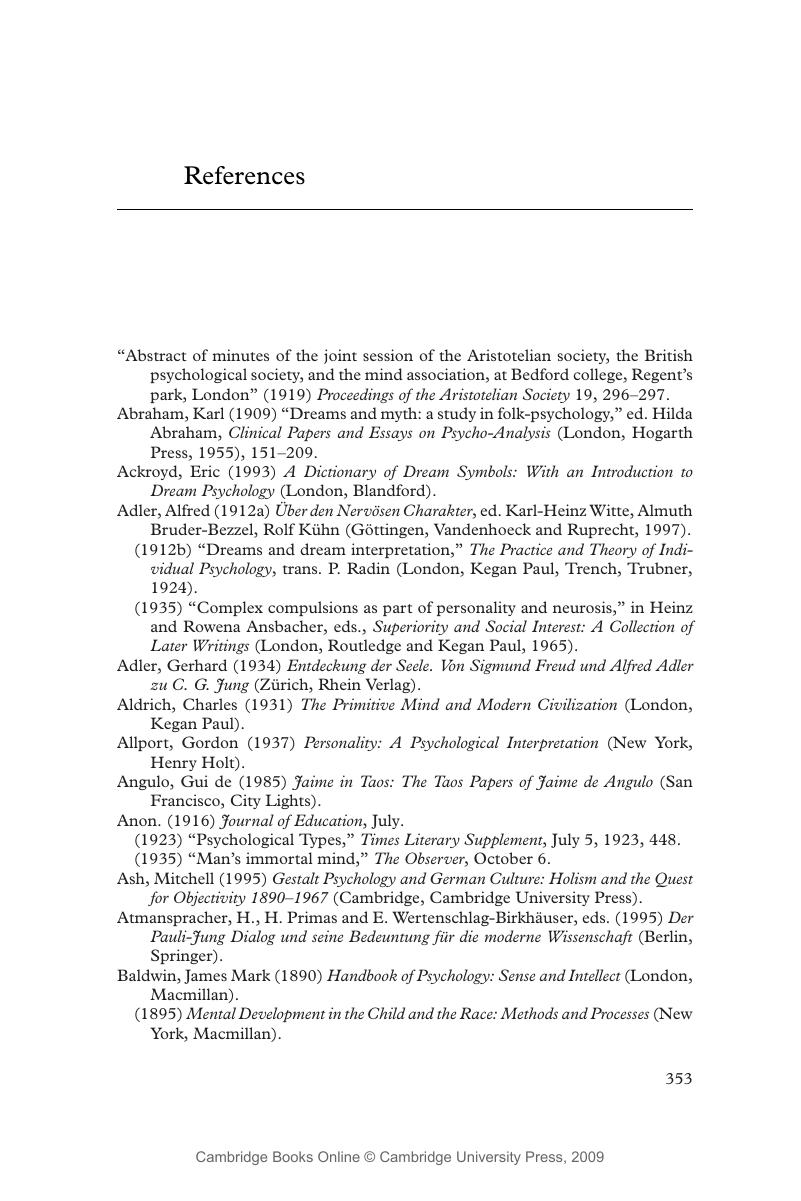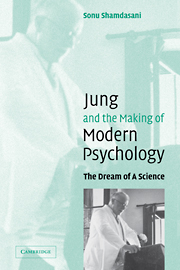References
Published online by Cambridge University Press: 22 September 2009
Summary

- Type
- Chapter
- Information
- Jung and the Making of Modern PsychologyThe Dream of a Science, pp. 353 - 377Publisher: Cambridge University PressPrint publication year: 2003



